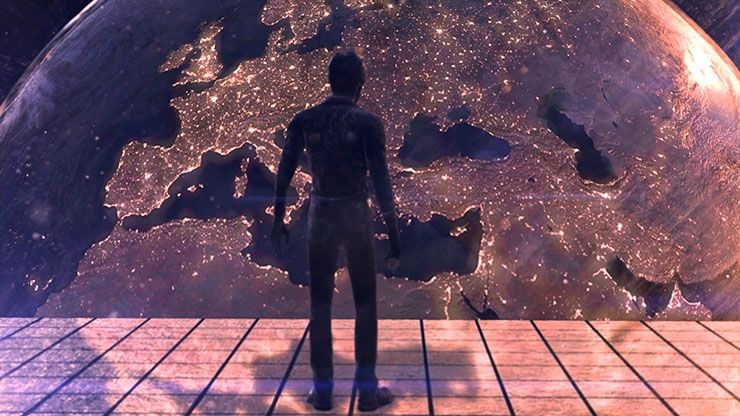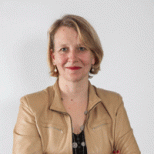The new grammar of the risk economy
- 2024.12.07
- 0
- Download the publication (PDF - 299,88 KB)

Read the article
If there is one certainty – not a happy one, mind you – it is that geopolitical tensions will form the backdrop to our individual and collective scenarios and trade-offs for years to come. And this will be the case regardless of what political developments may arise. But how is this context reshaping governments’ priorities?
There are at least three reasons for this certainty that geopolitics is once again an apparent basis for political economics. It can be taken as read that a hegemonic power struggle between two countries as large and powerful as the United States and China will not be resolved quickly. At best, the situation might stabilise. It can also be assumed that the existential conflicts in Ukraine and Gaza will not be quickly digested: they will continue to divide public opinion in many countries for at least a generation – the generation that will carry the associated emotional scars. The loss of the West’s moral reputation in the Global South as a result of its perceived double standards is neither geopolitically marginal nor quickly reversible. Meanwhile, China has no established soft power; countries mired in Chinese debt and tensions in the South China Sea have led many to see Beijing as a key trading power but a geopolitically dangerous one. Lastly, it is clear that no election can resolve the deep political and, now, social polarisation in the United States: problems with the country’s governability and political legitimacy are entrenched, with all the attendant implications for the global economic scenario.
The “mental new normal” of geopolitics leads to neo-mercantilism
The idea of borders, confrontation, power and a world divided up into friends and enemies is thus becoming a “mental new normal” that is shaping how people think. Consequently, this vision of the world is also beginning to form the intellectual core of the political and economic consensus not forgetting that a consensus, once accepted by a majority, looks like a certainty. So, for example, the 1980s Washington consensus, according to which prosperity was linked to free trade, is being supplanted – in the US in particular – by the emerging picture of a zero-sum neo-mercantilist world in which a gain for one country necessarily means a loss for another. Within this framework, a country’s trade surplus is no longer interpreted based on the relationship between savings and investment but rather on the principle of a political economy in which the wealthy amass their wealth at the expense of everyone else. Such thinking represents a huge mental shift: any country with a trade surplus becomes a potential rival.
And this reshaping of the consensus is happening against the backdrop of multiple fears, some of which sometimes spill over into anger: fear of conflict, scarcity, migration and so on. Our emotional environment is changing ever more quickly as geopolitical risk and climate risk collide and interact. Fear has a powerful effect on government priorities1 and helps create a political economy of fear – a “cognitive time” intuited by German sociologist Ulrich Beck back in the 1980s: a “risk society” fuelled by growing awareness of the threat as much as by the threat itself. “In their effect, with the recognition of modernization risks and the increase of the dangers they contain, some changes to the system occur. This, of course, happens in the form not of an open but of a silent revolution, as a consequence of everyone’s change in consciousness […]2.”
The risk society is the first step towards the security society
In truth, it is impossible to be safe in the face of major and, above all, unforeseeable risks3. Governments in the risk society must nevertheless offer a sense of safety. And this sense of safety will be one of the foundations of new forms of political legitimacy and of governments’ new priorities. Which means the risk society is merely the first step towards the security society.
This change in the perception of risk is clearly overturning part of the theoretical basis of liberalism but the latter has yet to be replaced by any coherent new corpus. We are still in a period of shifting beliefs linked to the transition from one system of thought to another, from one paradigm to another. This is what Gramsci called an “organic crisis of the system”. “It is a long business to shuffle out of the mental habits of the pre-war nineteenth century world”, said John Maynard Keynes in a speech given on 19 April 1933, the day before the dollar’s convertibility to gold was suspended. In this speech, Keynes explained why he had abandoned his free trade convictions in favour of protectionism. He explained that this shift was linked to his fears and pre-occupations, “along with those of many or most, I believe, of this generation throughout the world, being different from what they were4.”
A new grammar for public policy?
The risk society is changing the role of the state, then, but this change is not a straightforward process. On the one hand, the functions of government are expanding to become those of a “katechon” tasked with warding off disasters and defining and protecting public goods. On the other hand, the normative state and its digitalised administration are meeting with increasing resistance. The state is now payer, employer, insurer, redistributor, regulator and strategist! The public health crisis also saw the return of the “hygienist state” of the kind that existed in the nineteenth century, and of the Hobbesian state as the guardian of collective safety – sometimes at the expense of individual freedoms. Last but not least, there is the paradox by which financialised economies and large globalised corporations still manage to remain more or less beyond the control of public authorities. When it comes to taxation, the list of points of tension can only grow longer.
Above all, though, risk society states will be judged on their ability to anticipate and protect against scarcity – which will require high levels of coordination between public and private stakeholders and central and local ones. Constraints on planning and storage, priority sectors… in fact, the safety paradigm is gradually supplanting (or transforming) the growth paradigm. The winners in the new global economic order will be those who are the first to understand this grammar of the economy of scarcity, though the latter will obviously not emerge in the same way in advanced countries as it does in the rest of the world. While the wealthiest seek to control value chains, vulnerable countries try to escape the status of being victims twice over, hit hard by shocks and the decline in foreign investment.
We are not all equal in the face of scarcity
Paradoxically, economies of abundance are not those that are hit hardest by scarcity. However, the fact that citizens in such economies have been turned into consumers5, and that the social contract depends precisely on continued abundance, only amplifies their aspirations to safety. This means the political shock of scarcity is particularly powerful in such economies. Moreover, since differing levels of income fuel asymmetries of perception, scarcity reveals inequality. The wealthiest confuse scarcity with delayed supply or reduced variety, while the poorest struggle to meet their most basic needs. However, scarcity always has huge political implications for everyone – with a “memory effect” that lingers for at least two generations. The risk of supply shortages thus redefines the value of goods depending on their political value, which determines which resources are strategic and essential: water, land, energy, pharmaceuticals, fertilisers, semiconductors, minerals, food supplies, etc.
The dangers of the public safety mindset
The safety economy has the clear advantage of bringing us closer to reality. But the increasing prevalence of crisis-based thinking means short-term policies are almost certain to take priority over long-term ones. And, above all, political analysts are raising the alarm about the risk of a drift towards what Romain Rolland, in his manifesto “Above the Battle”6, called the “doctrine of Public Safety”. There are even fears of a slide into a more or less thinly disguised permanent state of exception, regardless of the type of regime or administration in power – a situation in which the social contract revolves around managing potential coming catastrophes as much as actual ones… This would obviously be a failure of the kind of reflexive modernity Ulrich Beck wished for: he urged citizens to think of the causes of catastrophes not as exogenous factors – the logic of the “Black Swan” event that no one could have foreseen – but as endogenous phenomena forged in the very heart of our economic and political systems. He urged us to think of events from the perspective of what we have done to bring them about.
- Frank Furedi, How Fear Works: Culture of Fear in the Twenty-First Century (New York: Bloomsbury, 1998)
- Ulrich Beck, Risk Society: Towards a New Modernity (London and New York: Sage, 1992), page 78
- See “Towards geosecurity for food systems?”, Le Déméter 2024, Mondes Agricoles : Cultiver la paix en temps de guerre
- John Maynard Keynes, [1933], 2017, “National Self-Sufficiency”, The Yale Review, Vol. 22, no. 4: 755-769
- Marc Augé, L’avenir des terriens (Paris: Albin Michel, 2017): page 82
- “Above the Battle” is a text about the First World War written by Romain Rolland on 15 September 1914 and published as a supplement to the Journal de Genève on 22 September 1914.

Risk society states will be judged on their ability to anticipate and protect against scarcity which will require high levels of coordination between public and private stakeholders and central and local ones. Constraints on planning and storage, priority sectors… in fact, the safety paradigm is gradually supplanting (or transforming) the growth paradigm. The winners in the new global economic order will be those who are the first to understand this grammar of the economy of scarcity, though the latter will obviously not emerge in the same way in advanced countries as it does in the rest of the world.
Tania SOLLOGOUB, Economist
